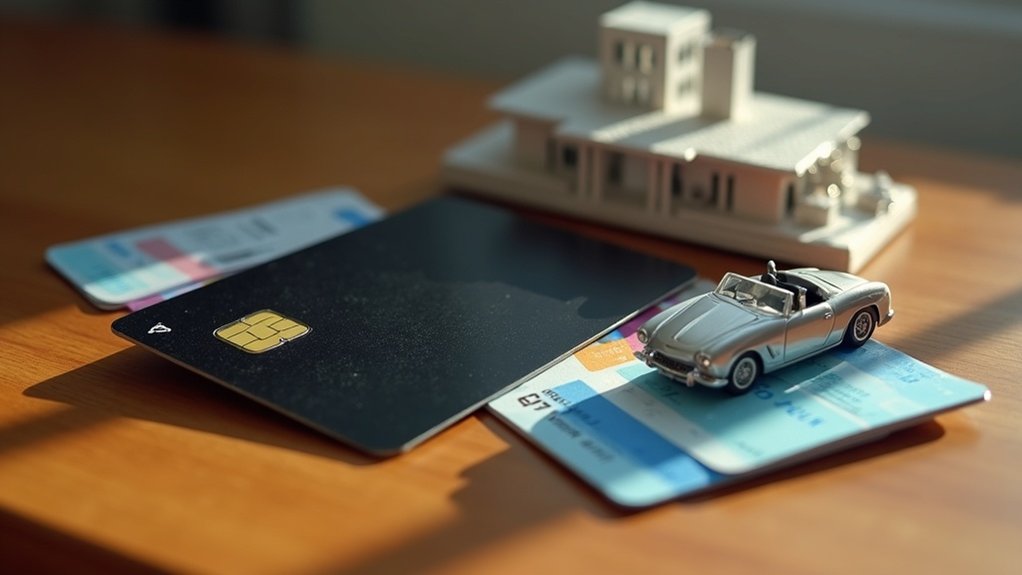Recovering lost Bitcoin requires detective work. Users should search old devices, emails, and notebooks for forgotten passwords or seed phrases. Professional recovery services exist, charging 8-20% of salvaged assets—but only if successful. The blockchain’s efficiency means no customer service for password resets. With 2.3 to 5 million BTC potentially lost forever, prevention beats scrambling for solutions. Legitimate methods won’t promise miracles, just methodical approaches to digital asset archaeology.
While Bitcoin has created countless millionaires, it’s also created a special kind of misery for those who’ve lost access to their digital fortune. The statistics are brutal. Between 11 and 25% of all Bitcoins ever mined—that’s 2.3 to 5 million BTC—will be permanently lost by 2025. Gone. Kaput. Those coins might as well be on Mars.
People lose their Bitcoin in predictable ways. Forgotten passwords. Misplaced seed phrases. Dead laptops. Corrupted hardware wallets. Or the classic blunder: sending coins to the wrong address. The blockchain doesn’t care about your mistakes. It’s ruthlessly efficient and utterly indifferent to human error. Using self-custody wallets means taking complete responsibility for securing your private keys and recovery phrases.
The blockchain’s indifference to your mistakes is the price of true financial sovereignty.
Recovery starts with the basics. Search everywhere. Check old computers, phones, email attachments, and cloud storage. Look for USB drives collecting dust in drawers. Dig through notebooks for scribbled seed phrases. People find fortunes in the strangest places. Sometimes the answer was literally under their nose the whole time.
When DIY methods fail, professional recovery services exist. Companies like Puran Crypto Recovery specialize in the seemingly impossible. They use forensic techniques to reconstruct partial data, trace blockchain movements, and attempt password recovery. But they’re not magicians. No seed phrase usually means no recovery.
And they don’t work for free—expect to pay 8-20% of whatever they salvage. Legitimate services operate on a no recovery, no fee model, charging only when they successfully retrieve your assets. Beware of scammers promising guaranteed results.
For stolen coins, blockchain analysis combined with quick action (within 48 hours) can sometimes lead to recovery. The transparent nature of the blockchain means transactions leave footprints. Forensic tools can follow these trails, potentially identifying exchanges where funds ended up. Unlike lost Bitcoin that remains permanently inaccessible, stolen coins can sometimes be traced if acted upon quickly.
The best solution remains prevention. The technology is unforgiving. No customer service exists to reset your Bitcoin password. No manager to plead with. Just cold, hard cryptography.
In this brave new financial world, you alone are responsible for your wealth—a freedom that comes with its own special kind of terror.
Frequently Asked Questions
Can Someone Steal My Bitcoins if They Find My Lost Wallet?
Yes, they absolutely can steal your bitcoins if they find your lost wallet. No protection? They’re gone in seconds.
Hardware wallets with PINs offer some defense, but nothing’s foolproof. Unencrypted seed phrases? Might as well hand over your coins directly.
Online wallets without 2FA? Please. The crypto world isn’t forgiving—possession of private keys equals ownership, period.
Thieves don’t care about your sob story. Once those coins move, they’re history.
What Fees Might I Encounter When Recovering Lost Cryptocurrencies?
Recovery services typically charge 8-35% of recovered funds.
Success-based model means no recovery, no fee. Simple. High-value wallets might get custom pricing. Some demand upfront payments for asset tracing—that’s separate from recovery fees.
Watch for scammers demanding large deposits with no guarantees. Classic red flag.
Fees vary based on complexity, amount recovered, and cryptocurrency type. More complicated cases cost more. Makes sense, right? Bigger recoveries might qualify for negotiated rates.
Are There Recovery Services for Cryptocurrencies Other Than Bitcoin?
Yes. Recovery services extend well beyond Bitcoin.
Hardware wallets like Ledger and Trezor, software wallets like MetaMask and Trust Wallet—they’re all covered.
Ethereum, Litecoin, Dogecoin, DRK—doesn’t matter. These services tackle password recovery, seed phrase issues, and even stolen funds across multiple cryptocurrencies.
They’ll dig through damaged devices, reconstruct corrupted wallet files, and extract private keys. Some even handle DeFi assets and NFTs.
Bitcoin might be king, but recovery services don’t discriminate.
Can Exchanges Help Recover Coins From Personal Wallets?
Exchanges can’t help recover coins from personal wallets. Period.
They don’t hold private keys to non-custodial wallets, so they’re useless if you’ve lost your seed phrase or password. They might flag stolen funds if they enter their platform, but that’s about it.
No magic buttons, no special access. Recovery specialists exist for this exact reason. Exchanges just shrug and say “not our problem” when it comes to personal wallet mishaps.
How Long Does the Typical Wallet Recovery Process Take?
Wallet recovery timeframes vary wildly.
Simple password resets? Hours, maybe a day.
Got your seed phrase handy? Minutes.
But complex cases—hacks, fraud, legal messes—can drag on for months. No joke.
Recovery speed depends on what you’ve lost.
Custodial wallets often reset quickly via email.
Non-custodial with no seed phrase? You’re probably screwed.
Technical skills matter too.
Some people fumble through recovery for days when it should take minutes.
Classic human error.









